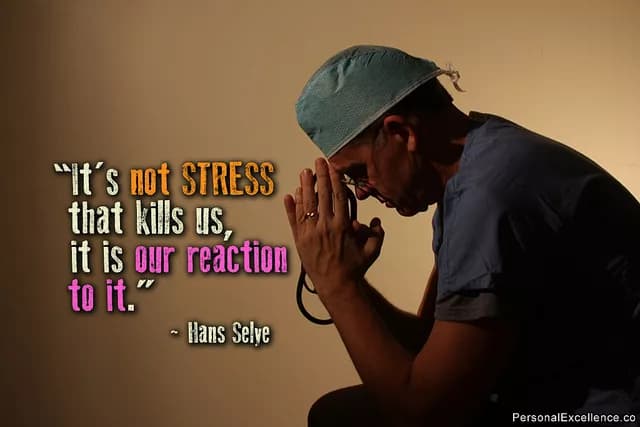
When The Healers Need Healing: Substance And Alcohol Abuse By Physicians
According to an article that was published in USA Today last year, 100,000 medical staff, including doctors, nurses, and technicians, were abusing drugs, putting patients at risk. In fact, a report suggests that 10% of all physicians develop problems with alcohol or drugs at some point in their careers. A more recent statistic puts the number of doctors who met the diagnostic criteria for substance abuse disorder from 10-15% in the USA.
Substance abuse (including prescription drugs) appears common in both genders of doctors. Several factors seem to contribute to doctors’ substance abuse. Some of them are:
- Having committed a major medical error in the previous three months
- Easy access to drugs
- A legitimate medical condition for which painkillers are needed; it then turns into a habit
- To manage stressful situations
- To deal with withdrawal symptoms, etc.
Additionally, alcohol abuse is prevalent among physicians as well. A strong correlation was observed with having committed a major medical error, the number of hours worked, marital status, children, stress, etc., and alcohol abuse. Surgeons, who endure a high degree of exhaustion and depersonalization, which happen to be key elements of burnout, were found to be more prone to alcohol abuse in a study that surveyed 7200 surgeons in the USA.
Clearly, there appears to be a problem. Doctors seem to be good at recognizing addiction issues among their patients, but not in themselves. When hooked to drugs/alcohol, they become adept at hiding their addiction from colleagues and patients. Also, owing to their medical training, physicians are able to convince themselves that they could deal with the situation.
While many doctors surveyed for the Medscape Ethics Report said they’d report a colleague if they saw a problem, some said they would want proof for the same. However, they do report colleagues and friends, for the sake of protecting them, as well as the patients, from serious harm. As one physician puts it (quoted by the Medscape report), "I've reported a friend—not a friend anymore, but I had to. They would not seek help when I spoke to them personally, and the care of patients was in serious jeopardy."
The interaction between a doctor and a patient could also help bring attention to abuse issues in the doctor. Because patients suffer the consequences of a doctor’s addiction the most, vigilance on their part helps greatly. Warning signs for addiction problems could be when a physician:
- Slurs his/her words
- Gets annoyed/irritated easily
- Becomes emotional
- Is forgetful (beyond reasonable)
- Lacks coordination
- Looks untidy or messy
- Stumbles
Whether the abuse is self-reported or brought to attention by others, if diagnosed and treated, 80% of the affected physicians are able to recover from the substance abuse disorder, which is an exceptionally good outcome.
The Medscape report states, “Most states have physician health programs that enable doctors to seek confidential treatment and monitoring without disclosing their problem to a medical board. Physicians who participate in these programs have a higher recovery rate than the general population.”
Physicians are bound by oath to care for their patients. However, they are also vulnerable to the same pressures and stresses as ordinary human beings. Early identification and treatment of substance abuse in doctors will pave the way for their healing so that they can heal others.
Written by Mangala Sarkar Ph.D.
References:
Eisler, P. (2014, April 17). Doctors, medical staff on drugs put patients at risk. Retrieved May 19, 2015, from http://www.usatoday.com/story/news/nation/2014/04/15/doctors-addicted-drugs-health-care-diversion/7588401/
Skerret, P. Doctors aren't immune to addiction - Harvard Health Blog. (2012, November 16). Retrieved May 15, 2015, from http://www.health.harvard.edu/blog/doctors-arent-immune-to-addiction-201211165538
Berge, K., Seppala, M., & Schipper, A. (2009). Chemical Dependency and the Physician. Mayo Clinic Proceedings, 84(7), 625-631.
Oreskovich, M., Shanafelt, T., Dyrbye, L., Tan, L., Sotile, W., Satele, D., . . . Boone, S. (2015). The prevalence of substance use disorders in American physicians. The American Journal on Addictions, 24, 30-38. http://www.ncbi.nlm.nih.gov/pubmed/25409782
Oreskovich, M. (2012). Prevalence of Alcohol Use Disorders Among American Surgeons. Archives of Surgery, 147(2), 168-174.
Merlo, L., Singhakant, S., Cummings, S., & Cottler, L. (2013). Reasons for Misuse of Prescription Medication Among Physicians Undergoing Monitoring by a Physician Health Program. Journal of Addiction Medicine, 7(5), 349-353.
Reese, Shelly, Disclosures in Medscape Ethics Report, Drug and Alcohol Abuse: Why Doctors Become Hooked. Retrieved May 19, 2015, from http://www.medscape.com/viewarticle/843758
Related Articles
Test Your Knowledge
Asked by users
Related Centers
Related Specialties
Related Physicians
Related Procedures
Related Resources
Join DoveHubs
and connect with fellow professionals

0 Comments
Please log in to post a comment.